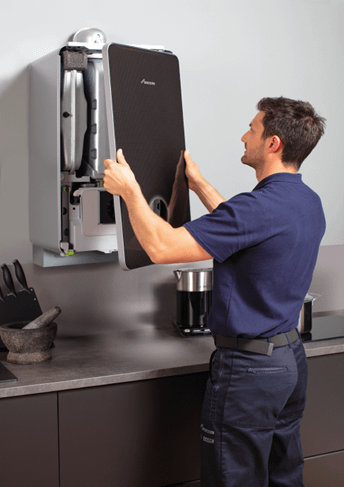A recent survey has shown that a growing number of British people are becoming more open to the idea of using hydrogen boilers. The number of those in favour has increased by more than 20% in just two years. While there are still some who remain sceptical, the overall trend looks positive. This is good news for those who believe in the potential of hydrogen boilers, as it suggests that public opinion is starting to shift. If this trend continues, we could see a lot more uptake of this technology in the coming years. So what’s behind this change in attitudes? And why are people starting to see hydrogen boilers in a different light? Let’s take a closer look at some of the reasons for this.
What Are Hydrogen Boilers?
Carbon dioxide production around the world contributes to the increase in global temperatures. This is why the UK government is making serious efforts to ensure that CO2 production and emissions are reduced as much as possible.
In domestic settings, your home’s carbon footprint is primarily influenced by the heating you use. Because of this, environmental alternatives for heating your home are being explored by the government. Hydrogen is among the alternatives being considered. Additionally, the government intends to ban gas boilers in newly built properties. By 2025, hydrogen boilers and heat pumps will be the main methods used for heating one’s home.
Will hydrogen boilers replace gas boilers?
The government intends to eventually phase out gas boilers and make the switch to a more environmentally friendly alternative. So by 2025, new homes will no longer be equipped with gas boilers.
Hydrogen boilers: How they work
Hydrogen boilers function similarly to natural gas boilers, but the former uses hydrogen instead of natural gas. Gas is burned via combustion, generating hot flue gases for heating water. Radiators in your home are heated by this water.
Hydrogen boilers: cost
Manufacturers are still testing prototypes of hydrogen boilers. Hydrogen boilers by Baxi and Viessmann are considered working prototypes. But currently, hydrogen boilers aren’t available for purchase or installation.
Experts estimate that the cost of buying a hydrogen boiler would be similar to that of a natural gas boiler. Approximated costs are somewhere between £500 and £5,000.
Brits Becoming More Open to Owning Hydrogen Boilers
Research by Worcester Bosch, one of the most reputable boiler manufacturers globally, revealed that Brits are slowly becoming receptive to the idea of hydrogen boilers. It found that over half of Brits are becoming supportive of this new technology.
It also found that 51% of respondents prefer that someone else try one out first before purchasing one for themselves. For the remaining percentage of Brits that felt they don’t know enough about hydrogen boilers to buy one, further education and reassurance about the technology are needed.
Reasons for Change in Attitude
So why are Brits beginning to perceive hydrogen boilers differently? Here are some of the factors behind the change in people’s perspectives.
- Environmental benefits
The Bosch research found that 9 out of 10 homeowners are swayed by the environmentally-friendly features of hydrogen boilers. Hydrogen is renewable. There are also no carbon emissions associated with hydrogen boilers since they produce only heat and water vapour from the combustion process. Furthermore, hydrogen is relatively non-toxic compared to using natural gas. This makes domestic hydrogen boilers safer to use in your home.
- Cost savings
Another advantage of a hydrogen boiler is its cost. It’s estimated that consumers can save approximately £6,000 with a hydrogen boiler versus getting an electric heat pump.




